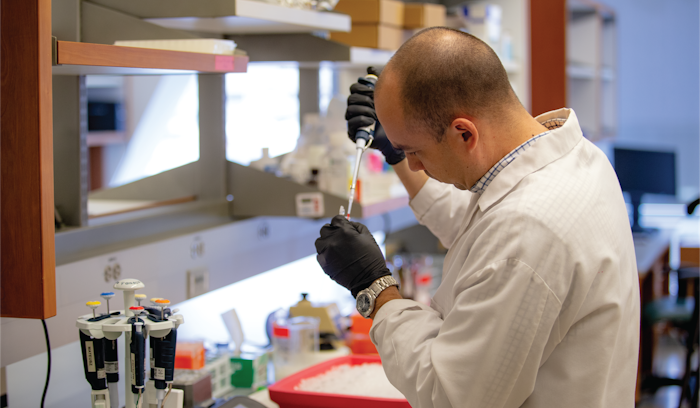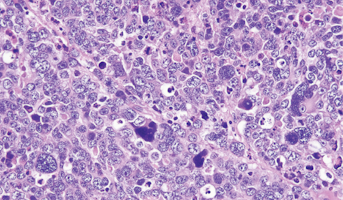Evaluation of Immunosignature Profile in Medulloblastoma
Email Principal Investigator

Mateusz Koptyra
CBTN Data
CBTN Specimen
CBTN Participants
CBTN Samples
Backer
Arizona State University
Sanford Burnham Prebys Medical Discovery Institute
Completed
About this
Project
Medulloblastoma is the most common malignant pediatric brain tumor. Current therapies consist of surgical surgical removal, whole brain or spinal cord radiation or aggressive chemotherapy. The understanding of medulloblastoma biology has dramatically increased over the past 10 years, including the identification of distinct medulloblastoma subgroups. Further investigations identified subgroups within subgroups and significant differences in risk, prognosis and therapeutic options for each. Current methods used for medulloblastoma profiling can be cumbersome. Detailed tumor molecular characteristics require access to tumor tissue, which is often a challenge particularly for brain tumors, so there is an urgent need to develop noninvasive diagnostic tools. Over the past years, technologies have been developed that permit non-invasive analysis using either circulating tumor cells in the blood or cell-free circulating tumor DNA. Analysis of immune response patterns can be possible through immunosignature, which is a pattern obtained when circulating antibodies in blood are allowed to bind to a large microarray of randomized–sequence peptides affixed to solid surfaces. This non-invasive approach requires very minimal volumes of blood and presents very high sensitivity. Researchers propose to complete this analysis on medulloblastoma samples in the hopes of developing a new diagnostic tool. This work is made possible through the Children's Brain Tumor Network contribution of 28 blood samples, 10 plasma samples and RNAseq data for this project.
Ask The
Scientists
What are the goals of this project?
Researchers will analyze the usefulness of immunosignature assay as a noninvasive diagnostic tool for medulloblastoma.
What is the impact of this project?
If this method is found useful for use with medulloblastoma patients, it could lead to more accurate and noninvasive diagnoses which in turn means more effective care for patients.
Why is the CBTN request important to this project?
Samples of the quality necessary to complete this work are rare, making the samples provided by the Children’s Brain Tumor Network invaluable to this line of research.
Specimen Data
The Children's Brain Tumor Network contributed to this project by providing 28 blood samples, 10 plasma samples and RNAseq data for this project.
Meet The
Team
Other collaborators:
- Dustin Hatefi from University of California San Diego
- Phillip Stafford from Arizona State University
- Stephen Johnston from Arizona State University
- Robert Wechsler-Reya from Sanford Burnham Prebys Medical Discovery Institute




